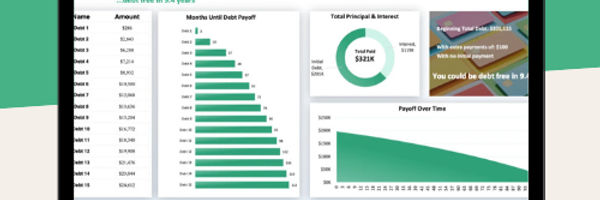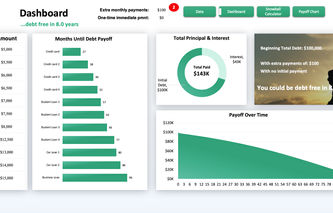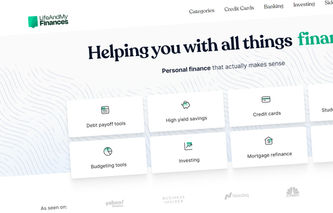In 2020, approximately 83% of Americans owned a credit card—and there’s a reason why. A credit card provides security, convenience, and immediate access to funds, and can even let you pocket some money. When used right. Apply for the wrong card and you’ll be paying fees for the privilege of carrying it in your wallet. But don’t worry—getting started is easy enough if you know where to begin.
This article will show you:
Reasons to get a credit card
How to check your credit score
How to set up a credit card
Features of a credit card
Credit card drawbacks
How to Get a Credit Card
Before we go into details, here’s a breakdown of how to get a credit card in 5 easy steps:
Consider the reasons for applying for a credit card
Check your credit score and reports
Read the terms and conditions
Seek preapproval
Submit your application
Similar articles:
Why Do You Want to Open a Credit Card?
Before applying for a credit card, consider the reasons for your application.
Derek Sall, financial expert and founder of Life And My Finances, outlines the top benefits of getting a credit card: “I got my first credit card when I was 21 years old. Definitely no regrets! It helped me build up my credit, so I could buy a house, rent a car, get cheaper insurance with my excellent credit, and get free money from the rewards. The best part is, I always pay my balance off each month and have never paid a dime in interest.”
So there seems to be a few themes here—
Build credit
You can build credit with a credit card by making on-time payments, keeping your utilization low, and using your card regularly. Having a good credit score makes it easier to make big purchases, such as a house or car.
Read more:
Earn rewards
Owning a credit card gives you the opportunity to earn rewards on purchases, as well as receive cash back. For frequent travellers, many credit cards also offer travel rewards, such as airline miles and hotel points.
Reduce interest rates on debt
Some credit cards offer an introductory interest rate on balance transfers. This allows you to transfer existing debt to your new card with no interest charges on that debt for a set amount of time, usually up to 2 years.
In plain language: by moving your debt between cards, you can save money you’d otherwise waste on interest.
Gain protection
Credit cards that offer purchase protection allow you to cover repair costs or replace faulty or unwanted items—often up to 3 months after purchase. Coverage can vary but usually falls between$500–$1000 per item.
If someone steals your debit card and goes out on a shopping spree, your money’s gone. You need to fight it back with the bank. With a credit card, you can first fight for your rights and pay only if you lose.
Improve quality of life
Getting a credit card facilitates in renting a car, getting cheaper insurance rates and getting accepted when renting an apartment. Despite being charged a convenience fee, you can also earn rewards and cashback on these purchases.
What Do You Need to Apply for a Credit Card?
Come prepared, and you won’t sweat in stress during the application process. The most important thing is to learn what’s typically required—
Proof of identification
When opening a credit card, you’ll be asked to provide proof of identification to show that you meet the required age limits. For most banks, you must prove that you’re at least 21 years old. However, many banks will lower this to 18 if you can provide proof of an independent source of income, or they may require a co-signer.
See our list of Best Credit Cards for 18-Year-Olds to pick the best option. Depending on the bank, you may also need proof of your US citizenship and residency.
Credit scores
One of the best ways to get a credit card is to check that your credit score aligns with the requirements provided by the bank issuer.
Understand your credit score and determine the best credit card for your particular score. Your credit score reflects your consumer credit history, which considers your outstanding balances and your purchase and credit line history.
Checking your credit score is simple thanks to free online tools. Go to Credit Karma and get an accurate credit score from two major credit bureaus and reports that won’t affect your credit score. You can also visitAnnualCreditReport.com to access a free report every 12 months offered by Equifax, Experian, and TransUnion.
Bank issuers are usually transparent about their credit score requirements, but the specific scores vary. The FICO® Credit Score Range is used by 90% of the top US lending institutions and gives clarity on what’s considered good or bad credit scores:
Exceptional: 800+
Very Good: 740–799
Good: 670–739
Fair: 580–669
Poor: 300–579
So what happens if you have a poor or no credit history? A bad credit score can cause a credit card application to be declined.
However, don’t lose hope—If you have a bad credit history, you can apply for a secured credit card. This will require you to pay a deposit as a type of assurance. Once you start making on-time payments, you can build up your credit score by demonstrating financial responsibility.
After improving your credit with a secured card, you can upgrade to a traditional credit card or close the account. For those starting their credit journey with low or no credit, the OpenSky® Secured Visa® Credit Card only requires a $200 deposit and is a great option for those who want to build their credit score.
The Secured Chime Credit Builder Visa® Credit Card also offers opportunities to build credit with no minimum credit score requirement and no credit check to apply.
Note: The Chime Credit Builder Visa® Card is issued by Stride Bank, N.A., Member FDIC, pursuant to a license from Visa U.S.A. Inc. and may be used everywhere Visa credit cards are accepted.

Lay out your credit card debt with the minimum payments and interest to see how long it will take to pay off!
What you will get:
Interactive dashboard
Customizable to your needs
Stay on track with charts and graphs
Suitable for up to 16 or 32 debts!

Read more:
How to Apply for a Credit Card?
After providing identification and checking your credit score, don’t rush sending the application just yet. There are several essential steps to take when setting up your credit card:
1. Understand the terms and conditions
Yes, that boring thing no one reads… and then gets in trouble. Reading the fine print can guarantee you find the right card for you. Pay particular attention to:
Annual fees
Check to see if your card charges an annual fee and if it’s within your budget. Annual fees can range from $0–$550 per year.
Cash advance fees
A cash advance is a short-term loan that's taken out against your own credit limit. A cash advance feeis the amount charged for using your credit card to get cash.
Annual Percentage Rate (APR)
The APR is the interest attached to your credit account during a billing cycle. If you carry a balance or have a late payment, you will need to pay the interest.
Balance transfers
A balance transfer involves moving debt between two accounts. Ideally, you should look out for a balance transfer option with a 0% rate. However, many have a 3-5% charge to transfer charge, so keep an eye out for that.
2. Undergo preapproval
Want some peace of mind before applying? Most best credit cards offer preapproval, or prequalification, which you can request on the bank issuer’s website. Preapproval is a soft credit inquiry, which means it won’t harm your credit score.
To get preapproved, you will have to provide basic information, such as your credit score and other financial details, to determine your chances of application success.
How to get preapproved for a credit card
Getting preapproved is very similar to going through a simplified credit card application process:
Request preapproval on the bank issuer’s website
Provide basic information, such as your name and address
Go through offers and compare to other banks
Submit the application for your chosen credit card
However, it’s important to note that preapproval doesn’t offer a 100% guarantee on your credit card application. Instead, it provides insight into how likely you are to be approved without needing a hard credit inquiry, which will likely hurt your credit score.
3. Go through with the application
Still wondering how to open a credit card? When submitting your application, you’ll be expected to provide basic personal details, such as:
your name
date of birth
address
social security number
annual income
Additionally, be prepared to give more information, like your:
housing status
primary source of income.
The entire process is typically quite painless. Banks want to encourage you to apply, so they tend to make the process as simple as possible.
So, what’s the best way to submit your application? Applying online should be your best bet, however, there are also other ways to send an application. Here’s a round-up of the different application methods:
Online
Submitting an online application is typically the fastest and easiest way to get a response. You can access the application through the bank’s website, where you can get an instant response in minutes.
Phone
Applying for a credit card via phone gives you the opportunity to talk to a real person and get a fast response. The downside is that you’ll likely have to deal with waiting times when waiting to speak to an advisor.
In-person
Finding a physical location isn’t as convenient as applying online, but you’ll get the chance to ask any questions about applying for a credit card. Just make sure you visit during business opening hours.
Sending your application via mail is the slowest method, as you will need to wait for the application to arrive at the destination and make its way back.This can take up to 2 weeks.
What to Look for in a Credit Card
How do you know which credit card is right for you? To make things easier, here are some key factors to look out for when browsing credit cards.
Repayment strategy
While searching for credit cards, it’s handy to consider your repayment strategy and plan for monthly budgeting. While you should prepare to pay at least the minimum payment every month, budgeting to pay more can help prevent interest charges or damage to your credit score.
If you need a little extra help in monthly budgeting, look out for cards that offer an autopay option to assist in the payment process.
Check out our free credit card payoff calculator for more.
APR offers
For those who want to pay down existing debt or have a big purchase to make, a 0% APR card is a smart option. A 0% APR card comes with an introductory 0% APR offer which covers purchases or balance transfers.
Interest rates
In the United States, the average credit card interest rate is approximately 16.65%. Those with a good credit score are more eligible for a low-interest credit card, whereas bad credit scores often lead to higher APR rates.
A low-interest credit card is also an appealing option for those carrying a balance, as it will decrease the amount of interest that needs to be paid.
Rewards
Want to earn rewards and save money? When searching for the right credit card, make sure the rewards align with your spending habits, as many cards offer bonuses in specific categories, such as entertainment, groceries, and gas.
Many cards also offer cash back rewards, such as Upgrade, which provides 1.5% cash back rewards on payments and a $200 bonus when opening a Rewards Checking account.

Lay out your credit card debt with the minimum payments and interest to see how long it will take to pay off!
What you will get:
Interactive dashboard
Customizable to your needs
Stay on track with charts and graphs
Suitable for up to 16 or 32 debts!

What Are the Downsides of Applying for a Credit Card?
Remember - around 83% of Americans own a credit card, and that's because there are many benefits. However, it’s not all sunshine and roses. You should also be aware of potential downsides:
Impact on credit
When you apply for a credit card, you will be subjected to a hard inquiry (or hard pull). Your card issuer will check your credit report to determine your eligibility. Hard inquiries can damage your credit score in the short term, but usually no more than two years.
Late payments can also damage your credit score, depending on how late the payment is and your credit history. Just one late payment can make your credit score drop by more than 100 points.
Penalty fees
As well as damaging your credit score, you may also face penalty fees if your bill is late. Fees can also be incurred when your payment is returned, or you exceed the limit on your credit card.
Application refusal
Unlike the hard pull, application refusals don’t hurt your credit score. If your application is refused, your issuer should inform you why it was denied. Learn from that experience and prep better for next time.
To improve your chances of approval, clear up any debts and decrease the credit utilization ratio (the sum of your balances divided by your cards’ credit limits). Keep an eye out for cards that align with your score. That way, you can build enough credit to qualify for higher-end cards over time.
Key Takeaway
All in all, getting a credit card can be the start of an exciting journey, with opportunities to build credit, earn rewards and start planning for that next big purchase. But to reap the benefits, finding the right card for you is key.
Apply for a credit card that aligns with your credit score and make you sure meet all the requirements. Lastly, don’t forget to read the fine print—so you know exactly what you’re signing up for!
FAQ
How old do you have to be to get a credit card?
Do you have to pay for a credit card?
How long does it take to get approved for a credit card?
How long does it take to get a credit card?
How to get a credit card with bad credit?
How to choose a credit card for the first time?
How to get a credit card with no credit history?
SOURCES
6 reasons to get a credit card in 2023 | CNN Underscored. (n.d.). Retrieved March 17, 2023, from https://edition.cnn.com/cnn-underscored/money/reasons-to-get-credit-card
The Fed—Economic Well-Being of U.S. Households in 2020—May 2021—Banking and Credit. (n.d.). Retrieved March 17, 2023, from https://www.federalreserve.gov/publications/2021-economic-well-being-of-us-households-in-2020-banking-and-credit.htm
What Is The Average Credit Card Interest Rate? – Forbes Advisor. (n.d.). Retrieved March 17, 2023, from https://www.forbes.com/advisor/credit-cards/average-credit-card-interest-rate/

.jpg)



